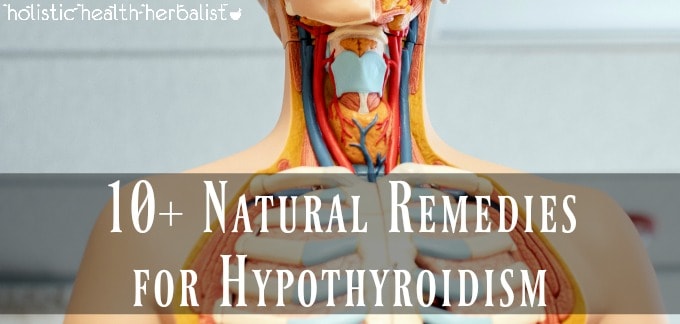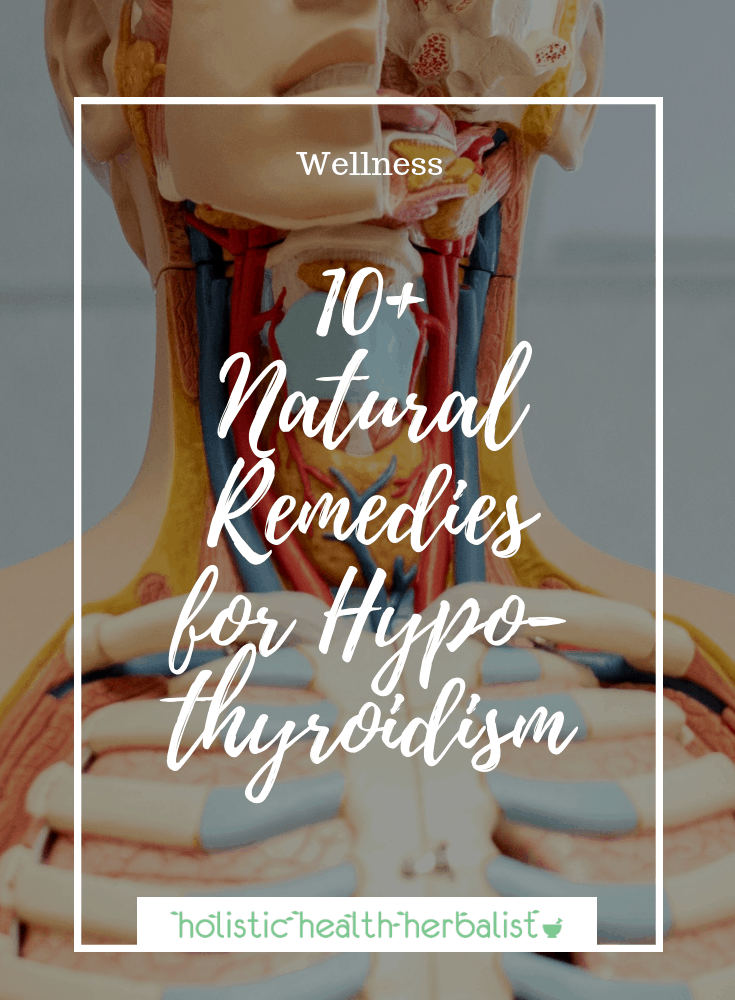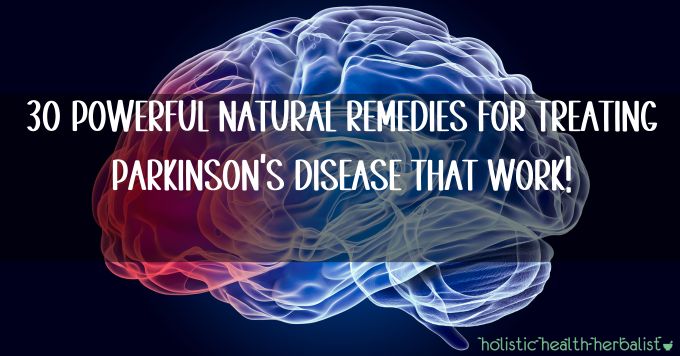Hypothyroidism, also referred to as an underactive thyroid, is a common condition where the thyroid fails to adequately produce or release thyroid hormones. This condition affects millions of Americans. In fact, it is believed that almost 5% of the population in the United States over the age of 12 has some variation of hypothyroidism. Women, in particular, and those susceptible to auto-immune conditions are at a higher risk of developing this condition.
What is the Thyroid?
The thyroid gland, located just below the Adam’s apple, secretes hormones that control the metabolic activity of every cell in the body. This means it has the ability to affect body temperature, heart rate, fat loss and weight gain, and energy production.
The thyroid gland also helps regulate other hormones which have an impact on our mental wellbeing and mood.
What Are the Symptoms of Hypothyroidism?
The symptoms for hypothyroidism are quite extensive which is why it’s important to get your hormones tested.
Here is a hypothyroidism symptoms checklist:
- A “full” sensation in the throat
- Aches and pains
- Aching or tender muscles
- Anemia
- Anxiety
- Apathy
- Blurred vision
- Brittle nails
- Carpel tunnel syndrome
- Chilliness
- Constipation
- Decreased perspiration
- Depression
- Dry eyes
- Dry hair
- Dry skin
- Easy bruising
- Eyebrow loss (outer third)
- Facial swelling
- Fatigue
- Goiter
- Hair loss
- Headaches
- High cholesterol
- Hoarse voice
- Impaired healing
- Impaired hearing
- Impaired immunity
- Infertility
- Insomnia
- Irregular or heavy periods
- Irritability
- Kidney problems
- Low body temperature
- Low libido
- More frequent colds and flu
- Muscle weakness
- Peeling nails
- PMS
- Poor concentration
- Poor memory
- Raynaud’s phenomenon
- Recurring infections
- Sensitivity to heat and cold
- Slow reflexes
- Tingling hands and feet
- Water retention
- Weight gain
What Are the Root Causes of Hypothyroidism?
- Certain Medications
Certain medications, specifically arrhythmia medications, synthetic estrogen, and lithium, can lead to the development of an underactive thyroid.
Other medications that may cause hypothyroidism include:
- Aminoglutethimide
- Amiodarone
- Bexarotene
- Carbamazepine
- Ethionamide
- Interferon alfa
- Interleukin (IL)-2
- Ipilimumab
- Oral Tyrosine kinase inhibitors (like Sunitinib, imatinib)
- P-Aminosalicylic acid
- Perchlorate
- Phenobarbital
- Phenytoin
- Rifampin
- Stavudine
- Sulfisoxazole
- Thalidomide
Speak with your doctor if you take or are considering taking medicines designed for cancer, heart conditions, or psychiatric support if you suspect you may have or may develop hypothyroidism.
- Genetic Predisposition
There is some evidence that suggests people with a close family member who has hypothyroidism or an autoimmune disorder may be more predisposed to develop hypothyroidism themselves.
This is believed to be associated with a mutation in the beta form of the thyroid hormone receptor that renders it inactive causing insensitivity to thyroid hormones.
There are even very rare instances where newborns are born with a dysfunctional thyroid gland known as congenital hypothyroidism, though this only occurs in 1 in every 4,000 births.
- Hormone Imbalance
Hormone imbalance, especially in regards to estrogen, progesterone, cortisol, and DHEA levels, can signal that something may be up with your thyroid gland.
Additionally, in rare cases, the pituitary gland can be the root of the problem since it is responsible for controlling the levels of hormones released by the thyroid. If it fails to release enough TSH (thyroid-stimulating hormone) then the thyroid itself fails to release enough thyroid hormone to keep the body running smoothly.
- Inactivity
Regular exercise has been shown to help support thyroid health by increasing the production of thyroid hormones. If you have subclinical hypothyroidism, exercise can help stave off its development.
- Inflammatory Thyroid Disorders
The most common cause of hypothyroidism in the United States is Hashimoto’s thyroiditis, an autoimmune disorder where the immune system attacks and destroys thyroid cells. This causes impaired thyroid hormone production and release and the thyroid itself becomes inflamed.
- Nutrient Deficiencies
Worldwide, the most common cause of hypothyroidism is a deficiency in iodine. Iodine is required for the production of thyroid hormones.
It has become commonplace for the average American to be deficient in iodine since the Standard American Diet lacks readily available iodine. Additionally, certain chemicals in the environment and our food such as fluoride, bromine, perchlorate, and chloride actually block the absorption of iodine.
Certain foods, known as goitrogens, also block the absorption of iodine. These include cabbage, mustard greens, turnips, broccoli, cauliflower, horseradish, kale, rutabagas, brussel sprouts, radishes, peanuts, soybeans, cassava root, pine nuts, and millet. Cooking these foods will help deactivate the goitrogens.
Selenium is another trace element that supports adequate production of thyroid hormones and is crucial for maintaining thyroid health. Selenium is also required to produce glutathione, a powerful antioxidant that fights oxidative stress and inflammation. Without enough glutathione, the chances of developing thyroiditis increases.
Research also suggest that Vitamin D deficiency plays a role in the pathogenesis of autoimmune diseases including hypothyroidism.
- Pituitary Gland Failure or Imbalance
The pituitary gland is a pea-sized area at the base of the brain responsible for producing or stimulating the production of many of the hormones in the body. One of its functions is to release Thyroid-Stimulating Hormone in order to stimulate the thyroid gland to produce thyroid hormones.
When the pituitary gland becomes impaired or is not being stimulated by Thyroid Releasing Hormone produced by the hypothalamus, hypothyroidism can develop.
- Poor Diet
Not getting enough nutrient-dense food that contains adequate levels of iodine, zinc, selenium, copper, Vitamin D, and tyrosine can contribute to thyroid disorders like hypothyroidism.
Eating enough sea vegetables like kelp, nori, dulse, wakame, and kombu as well as consuming high-quality wild-caught seafood is a great way to up your iodine levels naturally.
For selenium, consuming brazil nuts is one of the best ways to get this trace element into your diet.
- Pregnancy
After delivery, some women develop postpartum thyroiditis, a condition where a previously normal functioning thyroid gland becomes inflamed the first year after childbirth. This causes an abnormal increase in the production and release of thyroid hormones followed by a drastic decline.
For most women who develop postpartum thyroiditis, thyroid function returns to normal within 12-18 months.
Though it isn’t clear why some women develop this type of hypothyroidism, it is believed that they have an underlying autoimmune thyroid condition that flares after childbirth due to immune fluctuations.
- Stress
Proper thyroid function depends on healthy adrenal glands, the walnut-shaped glands located on top of the kidneys. In this day and age, it’s easy for the emotional and psychological challenges of life to take a toll on the adrenals, but did you know that there is a multitude of other factors responsible for adrenal insufficiency?
These include:
- Autoimmune conditions
- Blood sugar fluctuations
- Chronic infections
- Environmental toxins
- Food intolerances
- Inflammation
Weakened adrenal glands can actually cause hypothyroid symptoms, even without specific thyroid gland issues. However, when the adrenals “burn out”, it can affect the hypothalamic-pituitary-adrenal axis, a complex network of interactions that regulate body temperature, digestions, immunity, libido, energy, and mood.
Chronic stress depresses hypothalamic and pituitary function and reduce levels of thyroid stimulating hormone.
Adrenal stress also reduces T4 to T3 conversion, causes thyroid hormone resistance, and promotes autoimmunity.
Needless to say, it’s really important to reduce stress levels!
- Thyroid Injury
If the thyroid itself is damaged, it can have an effect on its functionality and reduce its ability to create thyroid hormones properly.
This can lead to hypothyroidism.
- Thyroid-Related Surgery or Radiation
Those who have has radiation therapy for head or neck cancer may have had their thyroid gland affected. Damage to the thyroid gland from radiation can lead to hypothyroidism.
How is Hypothyroidism Diagnosed?
- Digestive function and permeability – stool, urine
- Food intolerances and environmental allergies - blood
- General hormone testing (DHEA, estrogen, progesterone, testosterone, insulin, cortisol, IGF-1) – saliva, blood, urine
- Thyroid hormone testing (TSH, Free T4, Free T3, Reverse T3, anti-thyroglobulin, and anti-thyroid peroxidase) – blood, urine
- Toxic metal testing (mercury, lead, etc.) – hair, urine
- Vitamin and mineral deficiency (Vitamin A, Vitamin D, selenium, zinc, iodine, copper, magnesium) – blood, urine
What Diet is Best for Hypothyroidism?
If you have hypothyroidism, it’s important to eat organic sea vegetables such as kelp, nori, dulse, kombu, and wakame as well as consume fish and high-quality sea salt in order to get iodine into your diet.
Copper, zinc, and selenium deficiencies can make hypothyroidism worse, so also include nuts and seeds like pumpkin seeds, almonds, flaxseeds, walnuts, and brazil nuts to your diet to help encourage healthy thyroid hormone production.
Be sure to eat only organic, non-hormone, high-quality meats since consuming meat from animals raised with hormones disrupts thyroid function.
Eat plenty of fiber like whole grains, beans, fruit, and vegetables while also staying properly hydrated to help keep digestion regular.
Foods to Avoid with Hypothyroidism
Goitrogenic foods like broccoli, cauliflower, kale, brussel sprouts, cabbage, etc. may suppress thyroid function.
Also, steer clear of excess soy consumption and avoid drinking water from the tap since the chlorine inhibits the absorption of iodine.
What is The Best Hypothyroidism Natural Treatment?
As always, it’s incredibly important to speak with your doctor before taking any new supplements or herbs. Hormones are super complex and interconnected, it’s no wonder there are whole books written on them.
Below are a few things you can research and speak with your doctor or naturopath about that are known to support healthy thyroid function.
Ashwagandha
Ashwagandha supports T3 production, reduces cortisol levels, helps restore insulin sensitivity, and improves estrogen and progesterone levels.
Take 125 mg daily. You can get ashwagandha in tincture, powder, or capsule form.
Bladderwrack
Bladderwrack is a seaweed that can help improve iodine levels and support thyroid function.
Take 1 ml or 250 mg of bladderwrack daily. You can get it in tincture or capsule form.
Fish Oil
Taking up to 3,000 mg of high-quality fish oil will supply your thyroid with much needed essential fatty acids that improve its functionality.
You can get my favorite fish oil here.
Guggul
Guggul is an extract from the sap of the Indian myrrh tree. It helps fight against suboptimal thyroid function by enhancing the conversion of T4 to T3.
Take 25 mg of guggul up to three times daily. You can get it in capsule form here.
High-Quality Multivitamin
Deficiencies can make the symptoms of hypothyroidism worse so it’s important to round out your nutrition with a high-quality multi-vitamin.
I like this brand.
Iodine
It’s really important that you are under the supervision of a doctor or naturopath when taking iodine since it can be quite detrimental to the thyroid is done incorrectly. If used properly, iodine can greatly improve thyroid function.
L-tyrosine
L-tyrosine is an amino acid that combines with iodine to make thyroid hormone. Again, this supplement should only be taken under the guidance of your doctor.
Selenium
Selenium is essential for the production of free T3, the most active form of thyroid hormone. It also supports efficient thyroid hormone synthesis and protects the thyroid gland from damage from excessive iodine exposure.
Selenium has also been shown to reduce the levels of thyroid antibodies.
Take up to 200 mg daily. Though, I prefer to just eat 2-3 high-quality brazil nuts per day to get my selenium.
Thyroid Glandular
Thyroid glandular supplements can help stimulate thyroid function since they actually contain real thyroid hormones from eater desiccated pig or bovine thyroid glands.
Follow as directed on the label under the supervision of a doctor.
Vitamin D
Vitamin D deficiency may increase your risk for developing Hashimoto’s thyroiditis so if your levels are low, take a Vitamin D3 supplement. This brand is my favorite.
Homeopathy for Hypothyroidism
Homeopathy can be quite useful when it comes to easing the symptoms of hypothyroidism. Choose the remedy below that best suits your specific symptoms for best results in dilution 30C.
Take the homeopathics as directed on the label twice daily for two weeks. If within this time you notice improvement, you can stop taking the homeopathic unless the symptoms return.
Calcarea Carbonica
Calcarea Carbonica supports low thyroid function when you also experience fatigue, overwhelm, and are chilled. The person may be overweight, sweats profusely 9especially at night), and moves slowly with low energy. They tend to crave dairy.
Kali Carbonicum
Kali Carbonicum positively influences the hormonal system and is especially beneficial for thyroid conditions.
Lycopodium Clavatum
Lycopodium Clavatum is for right-sided enlargement of the thyroid. The person usually experiences an excessive amount of gas and bloating with a craving for sweets. They also tend to be irritable and run chilly.
Pulsatilla
Pulsatilla is for those who run warm and have a need for fresh air, crave sweets, experience low thirst, and have hormone imbalance. They are often sad and weepy.
Sepia
Sepia is one of the most commonly used homeopathics for thyroid conditions. It is specifically good for women with low thyroid function who feel irritable and chilly and crave salty, sweet, and sour foods.
Nux Vomica
Nux Vomica is good for those with thyroid burnout who feel fatigued, cold, irritable, achy, and are constipated.
Essential Oils for Hypothyroidism
The following essential oils are great for promoting balanced thyroid function:
- Black pepper
- Cedarwood
- Clove
- Frankincense
- Geranium
- Lavender
- Ledum
- Lemongrass
- Marjoram
- Myrrh
- Myrtle
- Peppermint
You can learn more about why each of these oils help support thyroid health and how to use them here.
You may also enjoy reading:
The Power of Red Light Therapy – The Vital Nutrient Your Body is Missing
How to Treat Chronic Fatigue Syndrome Naturally
11 Proven Essential Oils for Hypothyroidism
How to Support the Thyroid with Essential Oils
Sources:
The History and Future of Treatment of Hypothyroidism
Effect of acute aerobic exercise on arterial stiffness and thyroid-stimulating hormone in subclinical hypothyroidism
Vitamin D Deficiency and Its Association with Thyroid Disease
Central action of interleukin-1 in altering the release of TSH, growth hormone, and prolactin in the male rat
Impairment of hypothalamic-pituitary-thyroid function in rats treated with human recombinant tumor necrosis factor-alpha (cachectin)
Chemokine orchestration of autoimmune thyroiditis
Tumor necrosis factor-alpha decreases thyrotropin-induced 5'-deiodinase activity in FRTL-5 thyroid cells
Relationship of the increased serum interleukin-6 concentration to changes of thyroid function in nonthyroidal illness
Acute effects of interferon-alpha administration on thyroid hormone metabolism in healthy men
Reversible subclinical hypothyroidism in the presence of adrenal insufficiency
An Overview on Ashwagandha: A Rasayana (Rejuvenator) of Ayurveda
Selenium and Thyroid Disease: From Pathophysiology to Treatment








Leave a Reply